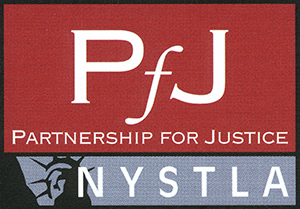What to Know About Child Custody During Divorce
Posted on September 7th, 2018 by Oddo & Babat, P.C.
Going through the process of divorce while fighting for custody of your child, can be difficult for the majority of parents to bear. When parents split up, discussions about their children’s care is often an emotional topic. It is estimated that about 20 million children in the United States live a single parent home. Child custody includes where the children shall live post divorce, and who has the legal right to make important decisions regarding upbringing.
There are many levels to child custody, that we have gone into further detail about in the article to follow.
Physical Custody
A parent with physical custody has the right to live with their children after divorce. However, it is an option for each parent to share this right through joint physical custody. It is also possible that only one parent is awarded this right, which is referred to as sole physical custody. The benefits to shared physical custody are that each parent can be an essential part of their children’s life. Common questions parents ask themselves about joint physical custody include:
- What days or weeks will be spent with each parent?
- How far apart will each parent live from the other?
- Do either of us plan on moving farther away in the next few years?
- Can each of us handle being in regular contact with the other?
Legal Custody
A parent with legal custody has the right to make choices regarding their child’s education, medical care, religion and overall upbringing. Just as with physical custody, legal custody can be shared jointly or awarded solely to one parent. It is more common for both parents to receive joint legal custody post divorce. However, there are some circumstances where sole legal custody is awarded. A judge may assign sole legal custody to one parent if any of the following occurred during the marriage:
-
- Abuse
-
- Neglect
-
- Mental illness
-
- Substance abuse
-
- Abandonment
-
- Incarceration
- Relocation
Third-Party Custody
There are rare situations in which a non-parent may attempt to obtain custody of the children. This scenario can be referred to as non-parental custody, guardianship, or third party custody. Someone who wishes to seek custody can start by filing a petition to the court, paying any fees, and perhaps even submitting a letter from the parents consenting to this decision. The court may then respond by doing a background check, interviewing, performing home inspections, and then reaching an ultimate verdict.
When Family Court is Needed
If the parents going through divorce are not able to settle disputes on their own or through mediation, the final decision may then be made by the family court system. At this point you may need to find top family law lawyer Plano offers. Factors that may be taken into consideration when making decisions about child custody include:
-
- Best interest of the child
-
- Each parent’s living situation
-
- Each parent’s willingness to be cooperative with the other
-
- The ability of each parent to provide for children after divorce
-
- Children’s preferences
-
- If there were cases of neglect or abuse during marriage
- Financial stability of each parent
Thank you to our friends and contributors at Scroggins Law Group for their knowledge about child custody and divorce.


 I consulted with David the first time a couple of years ago on a serious matter that affected a very close member of my family. Not expecting a good experience from this serious situation coupled with an attorney consultation, the entire thing surprised me as it was pleasant, professional, and completely successful. We found him clear, direct, generous and extremely knowledgeable throughout the process. I give my very strongest recommendation
I consulted with David the first time a couple of years ago on a serious matter that affected a very close member of my family. Not expecting a good experience from this serious situation coupled with an attorney consultation, the entire thing surprised me as it was pleasant, professional, and completely successful. We found him clear, direct, generous and extremely knowledgeable throughout the process. I give my very strongest recommendation








